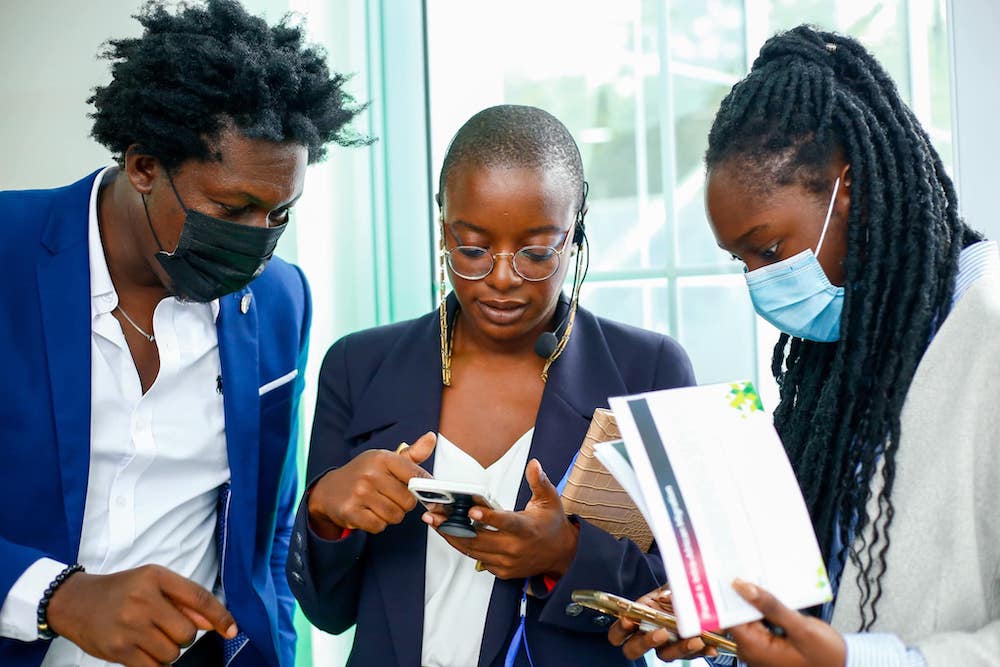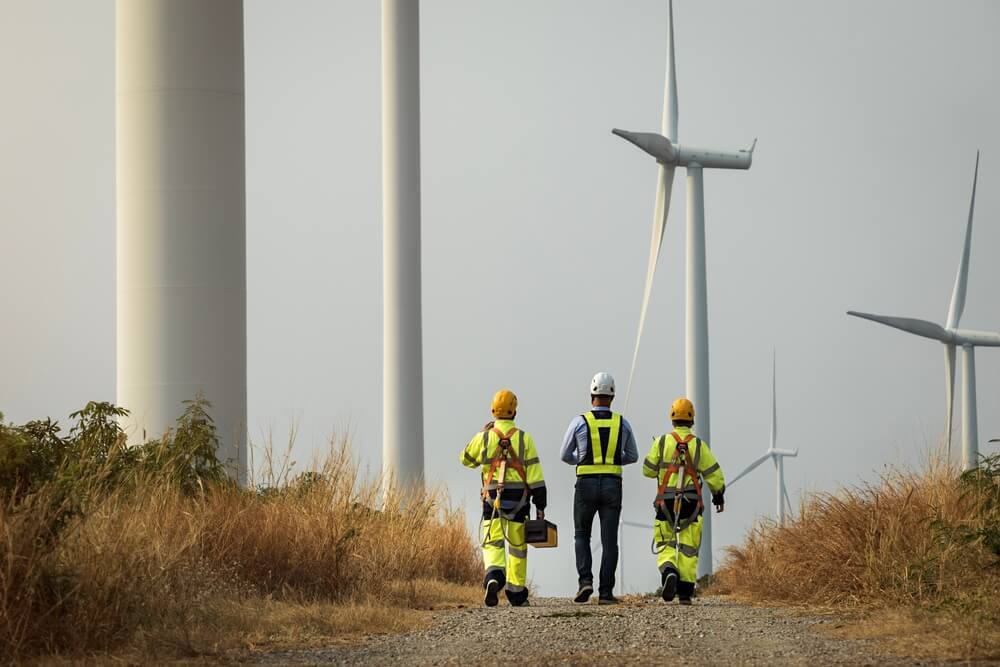Greetings, Agents of Impact, including the many new subscribers joining us this week. Old-timers and newcomers alike, please reach out and let us know what you’re up to and what you need.
Signals: African Fintech
Inclusive fintech is the first stop for impact venture capital in Africa. Small business loans. Digital payments. Free remittances. Venture investors looking for deals in Africa are stocking their pipelines with fintech ventures delivering financial services to underbanked consumers and businesses. In the first half of 2021, fintech ventures claimed nearly half of the $1.2 billion raised by African startups. Impact investors active in the inclusive fintech boomlet include Accion Venture Lab, Alitheia Capital, Bamboo Capital, Flourish Ventures, FMO Ventures, Investisseurs & Partenaires, Mercy Corps Ventures and Novastar Ventures. And that’s just for July dealflow. African ventures are on pace in 2021 to more than double the capital raised in each of the last two years.
- Mobile money. Less than half of Africans have access to financial services, like bank accounts. But more than three-quarters now have access to mobile broadband, putting mobile money and other digital financial services within reach of the majority of the population. Attracting investors: the fintech sector’s nimble, scalable app-based platforms that can show fast results. A red flag: oversaturated markets that can give customers too much access to capital (see, “Investors called to account for fintech lending practices as debt-traps emerge“).
- Affordable and inclusive. Impact investors are looking beyond “access to capital” by backing ventures offering affordable services and loans using alternative underwriting practices. Already this month, digital small business lenders Lidya and PayHippo in Nigeria have raised investments, as have Ghana-based digital remittances platform Zeepay and Nigeria-based digital payments provider TeamApt. Also: Europe-based FairMoney, a neobank, and free remittance payments platform Taptap Send closed rounds this month to expand services in Africa. While equity capital has been plentiful, lower-cost debt capital that inclusive fintechs need to grow has been more scarce (see, “How Lendable parses risks and returns to mobilize capital for inclusive fintech in emerging markets”).
- Gender alpha. Women-led ventures in Africa claimed 14% of venture capital flowing to the continent so far this year—up from 2% last year. Globally, women-led ventures secure less than 3% of venture capital; mixed-gender teams claim about 10% (see Voices, below). PayHippo and Zeepay are both women co-led companies. Other women-led African fintechs that have secured VC funding this year: Nigeria’s Bankly and Indicina and Kenya’s Lami and Koa.
- Share this post.
Dealflow: Vaccine Delivery
Adjuvant Capital backs VitriVax to deliver vaccines in resource-poor settings. The Series A financing will help VitriVax commercialize ALTA, its protective coating to extend the shelf life of vaccines without refrigeration or freezing. The Boulder, Colo.-based biotech is working with vaccine providers to deliver animal and human vaccines in underserved countries. “Adjuvant Capital has canvassed the globe for vaccine platforms like ALTA,” said Adjuvant’s Charlie Petty, who along with Glenn Rockman will join VitriVax’s board of directors.
- Global health mission. Adjuvant Capital combines catalytic and commercial capital to finance the development of drugs, vaccines, diagnostics and medical devices for diseases such as malaria, shigella, hookworm, HIV and tuberculosis in low- and middle-income countries (see, “Investors put $300 million into Adjuvant Capital as global health innovation shines”).
- Check it out.
Active Impact Investments closes $54 million fund for early-stage climate tech investments. The spike in climate financing has yet to reach early-stage startups. “Early-stage companies can’t mature without funding,” Active Impact’s Mike Winterfield told ImpactAlpha. The Vancouver-based B Corp is aiming to bridge the financing gap with its second fund, which will invest in 14 companies, primarily in the U.S. and Canada. Average check size: $1 million for seed and Series A rounds, with follow-on funding in future rounds. The fund’s first investment is in Encycle, which has developed AI-based software to manage commercial and industrial HVAC systems.
- Climate finance. Active Impact’s first fund of $10 million made 15 investments. Investors in the second fund include Canada’s Fondaction, Vancity, the University of Victoria, First West Credit Union, Hamilton Communities Foundation and clients of Genus Capital Management.
- Share this post.
Dealflow overflow. Other investment news crossing our desks:
- AXA IM acquires the Muhammad Yunus-backed carbon offset marketplace ClimateSeed from BNP Paribas.
- Singapore-based Workmate secures a $10 million loan from Lendable to grow its marketplace for informal workers.
- The Community Development Trust partners with Volunteers of America National Services to invest $2.3 million to preserve affordable housing in Puerto Rico.
- India payments platform DanaMojo raises 30 million rupees ($400,000) from Social Alpha and individual investors.
- Social Investment Scotland partners with the University of Oxford, the University of Cambridge and 10 other U.K.-based universities to launch Impact 12 to invest in mission-led university ventures.
Impact Voices: Gender Smart
Development finance stirs FOMO to draw commercial capital to gender-smart investing. The fastest way to get global financial institutions to embrace a new idea is to make them believe they are missing out. In the lead up to last month’s G7 Leaders Summit, CDC Group and other development finance institutions doubled their commitment to the G7’s 2X Challenge to help women in emerging markets access jobs, build resilient businesses and respond to the economic impacts of COVID-19. The statement: “If you hesitate, you will miss both a great business opportunity and a chance to create a better and more equal society,” CDC Group’s Nick O’Donohoe writes in a guest post. The $15 billion, two-year commitment to the 2X Challenge more than doubles the $7 billion that the gender finance initiative has secured since launching in 2018, which itself was more than double its original target of $3 billion (see, “With billions as bait, development financiers seek to hook private investors on gender-lens investing”).
- Follow the impact. A growing body of research finds that women-led and gender-diverse businesses perform better and generate wider development impact. “It is right that investing in women has now found its way to the front of the international development agenda,” says O’Donohoe. “If we are to achieve the U.N.’s Sustainable Development Goals, gender-smart investing must be at the heart of the broader commercial financial agenda as well.” (See, “Call No. 25: Gender smart investing for a sustainable recovery.”)
- Gender smart. Over the last three years, more than 200 deals have qualified for 2X Challenge investment. Latin American businesses secured the most 2X funding. The volume of deals in Africa quadrupled in the last year. The 2X initiative has built a framework and set of metrics to track and measure progress and through the 2XCollaborative. It has also partnered with the Investor Leadership Network of 14 global pension funds and GenderSmart, which is building the ecosystem for gender-lens investing.
- Keep reading, “Growth of gender-smart investing in development finance signals opportunity for commercial investors as well,” by Nick O’Donohoe on ImpactAlpha.
Signals: Climate Finance
Bridging the funding gap for climate mitigation and adaptation in emerging markets. Record-shattering heat and extreme weather are upping the urgency for climate action. On the front lines of climate disruption in emerging markets, climate finance is still catching up. Some recent signals:
- Banking on Amazon destruction. Many banks have banned oil and gas financing in the Arctic – but not in the Amazon. Natixis, Citigroup, JPMorgan Chase, Goldman Sachs, Deutsche Bank and HSBC are at “very high risk” for contributing to Amazon rainforest destruction, according to Stand.earth and Amazon Watch. Many banks have weak policies with regard to deforestation, pollution and biodiversity. Other blind spots: revolving credit facilities that don’t specify the use of funds, the lack of Indigenous consent, and inadequate grievance processes (see, “Will impact investors welcome the arrival of mechanisms to redress community grievances?”). The environmental groups call on banks to end fossil-fuel finance in the Amazon by the end of this year.
- Emerging market climate finance. The $66 billion in climate finance committed by multilateral development banks, or MDBs, last year represented an increase of about 7% from 2019, according to the European Bank for Reconstruction and Development and seven other MDBs. The banks brought along another $85 billion in co-financing for a total of $151 billion. Most of the multilateral funding went to climate mitigation; only a quarter was pegged for climate adaptation. Low- and middle-income countries received 58% of the funds, or $38 billion, mostly in loans (see, “Changing the climate for climate investments in emerging markets”).
- Cost of capital. A study by U.K. researchers published in Nature finds that a “climate investment trap” is hampering decarbonization efforts in developing countries. Perceived risks raise the cost of capital, dampening investment and delaying projects, raising risk perceptions and the cost of capital still higher.
- Follow the money. Funds dedicated to renewables ($52 billion) out-raised conventional energy funds ($8 billion) by more than six-fold last year, according to the financial data provider Preqin. Investors have poured another $30 billion into renewable energy PE funds so far this year, as much as 25-times the investment in legacy energy sources. Investors are fleeing investments that don’t meet ESG criteria for fear they’ll be left holding stranded assets. “One of the critical questions we have is who will buy this business in five years’ time,” Philippe Poletti of the private-equity firm Ardian told Bloomberg.
- Share this.
Agents of Impact: Follow the Talent
Tonnetta Carter, ex- of Medical College of Wisconsin, joins gener8tor as associate director of investments… The National Community Reinvestment Coalition is hiring a program manager and a special assistant to the chief of community finance and mobility… Lisa Mensah of Opportunity Finance Network and John Rogers Jr. of Ariel Investments were among the Black leaders who spoke with U.S. Treasury Secretary Janet Yellen and Deputy Secretary Wally Adeyemo about ways to address the racial wealth gap.
The Oikos Institute for Social Impact is hosting “The Black Church as an Anchor Institution and Co-Investor for Social Impact,” with Sydney Hulebak of the Georgia Social Impact Collaborative, Matt Varilek of Initiative Foundation, Nonprofit Finance Fund’s Antony Bugg-Levine, Rev. Hodari Williams of ITC Thriving Prophetic Congregations Initiative, Crossing Capital Group’s Rev. Dr. Sidney Williams, and Oikos’ Bonny Moellenbrock, today at 12pm ET.
Impact Capital Forum is hosting “Banking on 1.5 Degrees: Strategies for Banks to Manage and Reduce Their Impact on Climate Change,” Tuesday, July 13, and “How Can Corporate Venture Capital Guide Us Towards a More Sustainable and Equitable Future,” Thursday, July 15… Catalyst 2030, Beyond Bounce and Cattail Strategy are hosting “Financing Transformation: A lively frontier,” Thursday, July 15.
Thank you for your impact.
– July 8, 2021











